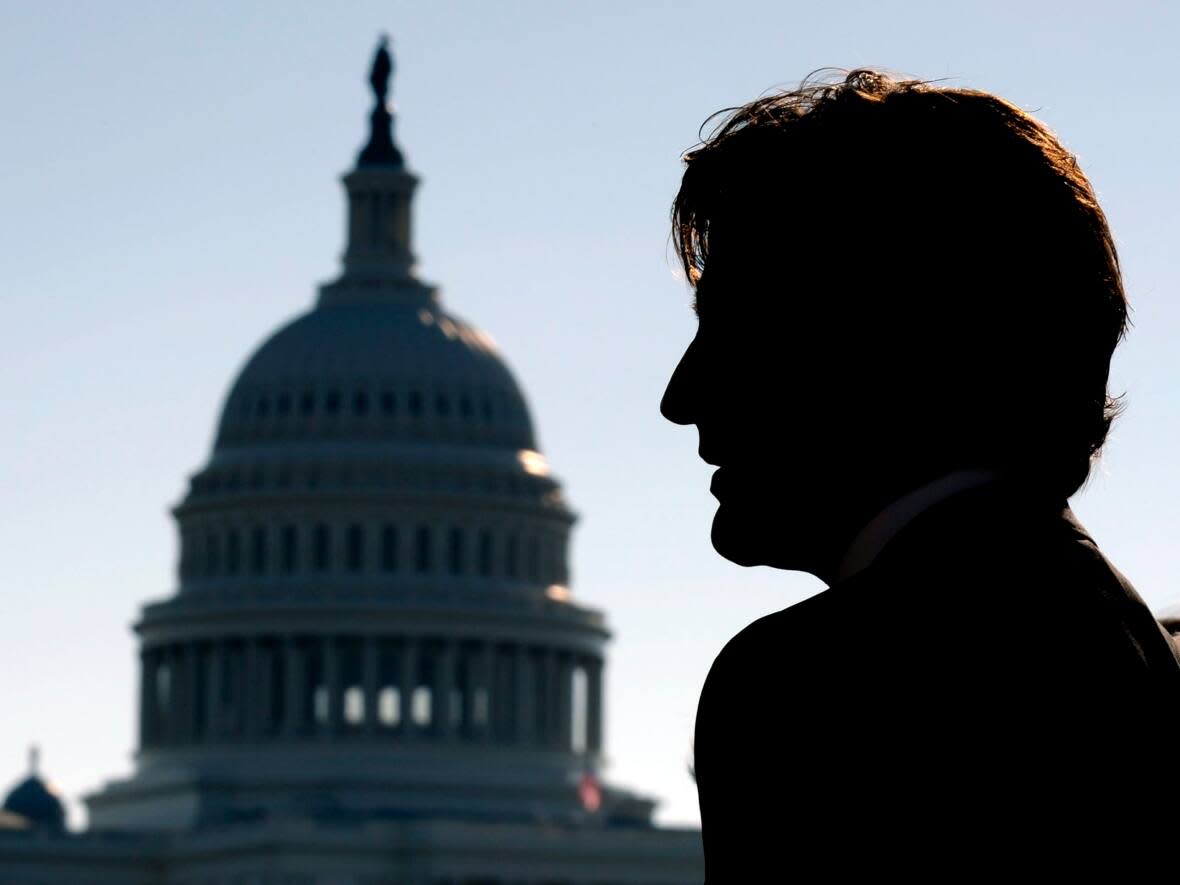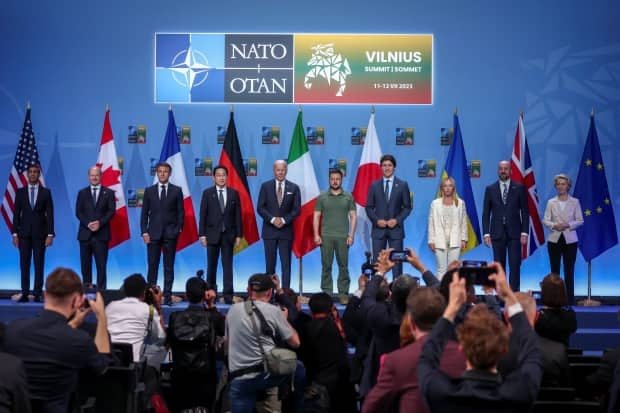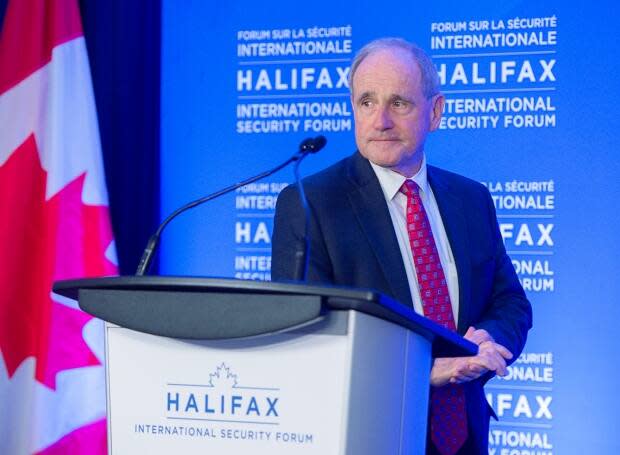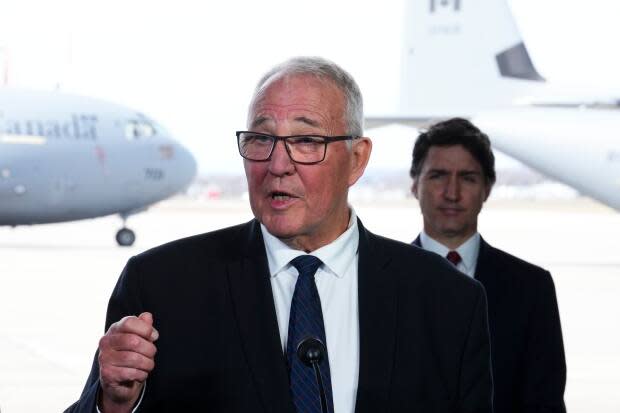Trudeau gets an earful on defence spending from nearly one-quarter of the U.S. Senate

Nearly one-quarter of the members of the United States Senate have sent an unusually critical letter to Prime Minister Justin Trudeau expressing dismay over Canada's level of defence spending.
They pressed Trudeau to come to this summer's NATO summit with a plan to fulfil Canada's commitment to reach the alliance's longstanding spending target.
The letter from 23 members of the U.S. Senate, from both parties, represents a dramatic and public escalation of pressure from Washington over a longstanding bilateral irritant.
In the note sent Thursday, the senators described this moment as one of the most dangerous in NATO's history, with tensions on multiple continents. They said allies must keep their commitments.
That written critique comes just days after Defence Minister Bill Blair completed what he referred to as a productive trip to Washington to promote Canada's new military strategy.
"We are concerned and profoundly disappointed," says the letter, referring to the spending levels in the strategy Blair came to promote.
"Canada will fail to meet its obligations to the Alliance, to the detriment of all NATO Allies and the free world, without immediate and meaningful action to increase defence spending."
The senators noted that Canada's plan would bring defence spending to just 1.7 per cent of GDP, two decades after NATO allies agreed to a 2 per cent target — which NATO describes as a mininum contribution.
They also suggested that Canada is moving too slowly to modernize the aerospace warning system in the Arctic, saying the North American Aerospace Defense Command desperately needs an upgrade that can't happen without Canadian cooperation.

They suggested this issue could come to a head at the upcoming NATO summit in Washington in July. While the letter came from lawmakers and not the Biden administration, it was signed by a dozen Democrats, some with close connections to the White House.
"Later this year, when the United States hosts the 2024 NATO Summit to lay out priorities for the upcoming year, we will expect your government and every NATO member that has not met the two per cent defence spending threshold to have a plan to reach this benchmark as soon as possible," said the letter.
Blair downplayed the senators' concerns while speaking to reporters in Ottawa on Thursday.
"I'm sure that I'd be able to assure those concerned senators that Canada will be a ready and capable ally to NATO," he said.
A number of senators who signed the letter — including Democrat Jeanne Shaheen and Republican James Risch — have made appearances at the annual Halifax International Security Forum in the past.

The letter stands in contrast to comments the U.S. ambassador to Canada made in April.
Speaking on a panel at the Canadian War Museum marking the 75th anniversary of NATO's formation, Ambassador David Cohen said the United States takes "a broader view" that goes beyond the alliance's military spending target for member nations.
"We choose to look at Canada's overall commitment to defence," Cohen said.
"We do look at the percentage of GDP that is spent on defence but we look at a wide range of other factors."
Cohen's comments came days before Ottawa released a new defence policy that committed billions of dollars in additional defence spending over the next decade.

But even with those additional commitments, the government estimates that Canada will see military spending hit 1.76 per cent of GDP by 2029-30 — still short of the NATO benchmark.
Blair pointed to the new policy as a sign Canada is working on increasing spending.
"Canada is on a very strong upward trajectory in defence spending. We know we've got work to do, we've acknowledged that since day one," he said.
"We've clearly indicated in our budget the path to getting that done."
In the NATO alliance, Canada spends less on defence than almost any other country as a percentage of its economy. But because it is wealthier than most NATO members, Canada spends more in actual dollars than all but a handful of NATO members.
The U.S. has for years pleaded with allies to spend more on defence. That pressure only escalated under the last president, Donald Trump, who has suggested allies that don't spend enough on their own defence don't deserve U.S. protection against invasion.
The pressure for allies to do more is growing, as the U.S. faces unprecedented challenges. The U.S. is now spending more to pay off the interest on its national debt than it does on defence, and its weapons manufacturing industry is plagued by notoriously long delays, as several rivals, including Russia and China, built up their own militaries.


